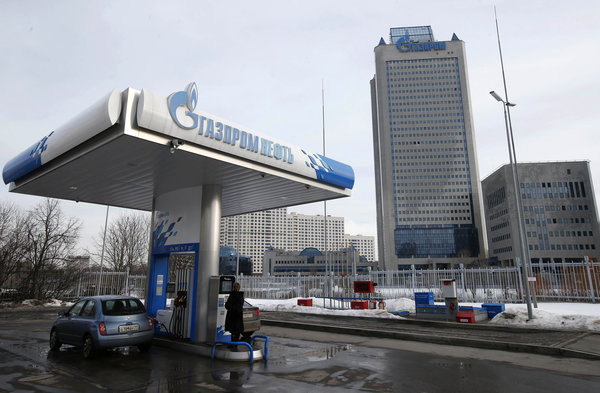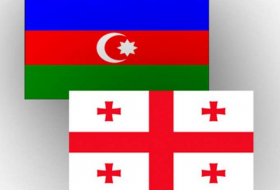Gazprom’s immediate response seemed aimed at elevating the issue to a matter of international relations. Gazprom suggested that it was not subject to the European Union’s antitrust jurisdiction because it is a state-controlled company. It signaled it was effectively an arm of the Russian government, “empowered by the laws of the Russian Federation with special socially significant functions” and with “the status of a strategic government-controlled business entity.”
In terms of antitrust law, many experts see the European Commission as having an upper hand, along with significant economic leverage.
Gazprom, they say, despite its market dominance, may need European customers even more than Europe needs its gas. That is because changes in the global energy market in the last year have weakened Gazprom financially, while also creating more potential alternative sources of supply.
The European Union is “in a stronger position to take on Gazprom than it has been before” said Christopher J. Weafer, a senior partner at Macro-Advisory, a Moscow-based business consulting firm. He noted, for example, that gas production in Azerbaijan would be coming online at the end of this decade. And he cited the potential of gas from Iran, if sanctions against that country were lifted. Iran has gas reserves comparable to Russia’s.
Europe “seems intent on putting a cap on Gazprom’s position,” Mr. Weafer said. “They can do that.”
Gazprom could eventually face a fine theoretically running higher than 10 billion euros, or about $10.7 billion. But the larger worry for Gazprom is the prospect of being forced to allow more competition in markets it has long controlled.
Advertisement
Mr. Weafer said that one of the few levers Gazprom might have in opposing the antitrust case would be to refuse new contracts to European customers, but that “that would be pretty much cutting off their nose to spite their face.”
Specifically, the European Commission, the European Union’s executive arm, said that unfair pricing might have resulted in higher gas prices in Bulgaria, Estonia, Latvia, Lithuania and Poland — countries that have long been wholly or substantially dependent on Russian gas. In those countries, the commission said, Gazprom was suspected of charging wholesalers prices that were significantly higher compared with the company’s costs or to benchmark prices.
The commission also suspects Gazprom of quashing competition by restricting gas flows to some parts of Europe. Gazprom seems to be “pursuing an overall strategy to partition Central and Eastern European gas markets, for example by reducing its customers’ ability to resell the gas cross-border,” the commission said in a statement.
Ms. Vestager, the European Union’s competition commissioner said, “Keeping national gas markets separate also allowed Gazprom to charge prices that we, at this stage, consider to be unfair.”
”If our concerns were confirmed,” she said, “Gazprom would have to face the legal consequences of its behavior.”
The commission also said that Gazprom might have been leveraging its powerful market position in Bulgaria and Poland by making supplies of gas conditional on those countries’ agreeing to participate in pipeline projects to carry even more Russian gas into Europe. The commission, which described its case but did not publicly share the formal “statement of objections” it had sent to Gazprom, indicated that it suspected the Russian company of strong-arming Poland and Bulgaria.
Poland operates a pipeline called Yamal in a joint venture with Gazprom. The commission said Gazprom had made gas supplies conditional upon maintaining its control over investment decisions for the pipeline. “This pipeline is one of the main infrastructures that could allow gas from suppliers — other than Gazprom — to enter the Polish market,’’ the commission said.
Bulgaria had agreed to be the landing point for a planned Black Sea pipeline called South Stream, before resistance from Brussels prompted Russia to suspend that plan last year. The commission said Gazprom had made wholesale gas supplies conditional upon Bulgaria’s agreeing to participate in South Stream, “despite high costs and an uncertain economic outlook.’’
Bulgarian officials did not immediately respond to questions. A Polish diplomat, who spoke on the condition of anonymity because of the sensitivity of the case, said that a greater degree of scrutiny should be required in such arrangements when the “bargaining position of wholesalers vis-à-vis a dominant supplier is weak.”
Gazprom said in a statement that it “considers the objections put forward by the European Commission to be unfounded.”
The company added that it “strictly adheres to all the norms of international law and national legislation” and that its pricing policies “are in full conformity with the standards observed by other producers and exporters of natural gas.”
The regulators’ move is a frontal challenge to President Vladimir V. Putin’s economic and geopolitical strategy by potentially limiting Russia’s ability to set prices favoring some customers and penalizing others.
President Dalia Grybauskaite of Lithuania, the country that called most vigorously for formal charges, said, “The decision is a strong signal to consumers and the market that rules apply to everyone.”
”The era of Kremlin-backed political and economic blackmail draws to a close,” said Ms. Grybauskaite, who also called for “swift and conclusive” results in the case.
One analyst said a quick result in the case looked unlikely, particularly since Gazprom had insisted on its importance as a strategic entity of the Russian government.
”I do not expect the government in Moscow to send someone to negotiate directly with Brussels as that would recognize the authority of the European Commission in these matters,” said Sijbren de Jong, an energy expert with the Hague Center for Strategic Studies, a research organization. “Gazprom and Moscow are going to do everything they can to continue to deal with national governments, rather recognize the primacy of Brussels over whom Gazprom deals with, and how,” Mr. de Jong said.
But some antitrust lawyers said Gazprom, and potentially its Kremlin backers, might have little choice but to deal with the European Commission in Brussels. Procedurally, the company has 12 weeks to respond to the commission’s charges.
”Gazprom has suggested since the start of this case that antitrust should not apply, given that it’s one of Russia’s strategic entities,” said Anne MacGregor, who is special counsel in Brussels at the law firm Cadwalader. “But that does not cut much ice with Brussels.”
”Many non-E.U. companies have been found in breach of the Union’s competition rules in the past,” Ms. MacGregor said. “Gazprom has subsidiaries established in the Union, and some of these were the subject of surprise raids by the commission back in 2011 when the case began.
”If you are doing business in Europe, then it really does not matter where you are from or who you are,” she continued. “You still must comply with E.U. rules.”
Gazprom has previously sparred with the commission, more than a decade ago. In those disputes, over its contracts in Western Europe, Gazprom agreed to fundamental changes without paying fines. In a series of settlements from 2003 to 2005, the commission ensured that companies including Eni of Italy, OMV of Austria and Ruhrgas of Germany would no longer be prevented from reselling gas to buyers in other countries.
But that was in a period when Russia was not engaged in military activity in Ukraine or the target of Western economic sanctions. This time, predicted Mr. Weafer, the Macro-Advisory analyst, there will be a considerable amount of political bluster from the Russian government. “The Kremlin,” he said, “is going to complain about this in fairly clear terms.”
More about:
















































